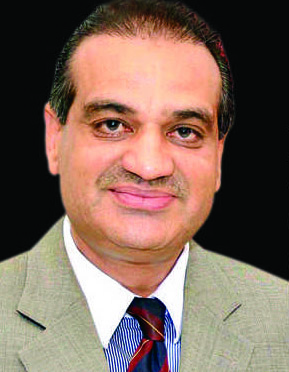Whither MQM? By Ansar Mahmood Bhatti

Let me borrow few lines from my April 2016 editorial, “As regards the future of MQM many analysts believe, this party has little political future in the coming days. The minus one formula seems to have worked at last in eliminating any future role of Altaf Hussain in Pakistan’s politics and the MQM will gradually be obviated from the political scene”.
After almost four months, my prediction seems to have transpired into reality as Altaf Hussain appears to have been ‘abandoned’ by his own party, though there are still doubts whether Farooq Sattar shall be able to run the party matters on his own. The MQM constitution says Altaf Hussain is the supreme leader of the party and no decision can be made without his nod. The real test therefore for Farooq Sattar and his colleagues is to alter the MQM constitution with a view to eliminating any future role of Altaf Hussain for good.
MQM as we all know came into being as a result of wheeling-dealing. MQM was created in mid 80s to counter Pakistan People’s Party primarily in Sindh province. And to the satisfaction of the creators of MQM, their idea really paid the dividends and thus PPP was contained considerably in Sindh and especially in Karachi. But interestingly the MQM specter then swept away Jamaat-e-Islami also – a party which had traditionally been very close to the establishment. The Jamaat-e-Islami has been struggling in Karachi and elsewhere in the Sindh since then.
While a ban on MQM is likely, Jamat-e-Islami and Pakistan People’s Party would surely be enjoying this situation as both of them turn out to be the potential beneficiaries of this decision. Pakistan Tehreek-e-Insaf too would greatly benefit if the MQM is banned or cut to size. Now the question is whether the establishment would also support this idea? The obvious answer of course appears to be a big No. Banning or cutting to size the MQM would mean supporting and strengthening Pak Sarzameen Party headed by Mustafa Kamal. The PSP is composed of similar mindset that once was considered backbone of MQM. The Establishment therefore probably may not like to rob Peter in order to pay Paul for the reasons that both Peter and Paul after all belong to same school of thought and follow same ideology.
Things, for sure, have become difficult for Altaf Hussain who is now likely to become a liability for the British government also because after recent developments he will no longer be in the commanding position in MQM. It is therefore expected the British government, that seems to have realized that Altaf Hussain no longer remains its asset, would wish to dispose him of sooner rather than later.
There is a wider consensus that MQM must not be obviated from the political scene. They are a political reality and hence deserve to be dealt with accordingly. However the party has to give assurances that it would genuinely strive to do away with its image of being a terrorist party and a party that seeks to get power not thru votes but thru the barrel of gun. It if is able to successfully transform into a genuine political party just like other political entities, then nobody would demand its disbandment.
Karachi, the biggest business of hub of the country, used to be a city of lights but unfortunately it turned into city of terror because of political wheeling-dealing. Ostensibly, MQM played a major role in destabilizing the city, but it also remains a fact that all other stakeholders did play their role also, just for petty political gains.
One must compliment Rangers operation in Karachi that situation is fast returning to normal. Rangers have done their job now it is the responsibility of the Sindh government to not only work for sustaining the situation but also make concerted endeavours in order to avoid any such predicament in the days to come.
Summing up, equally important is to take cognizance of those internal and external facilitators at whose behest certain wings of this party had let the hell loose on the innocent people. A punitive action against such facilitators may help prevent such trends in future provided this action is carried out without any fear or favour.
Related News

“US Country Report: A True Reflection, or…”
By Qamar Bashir Pakistan’s Foreign Affairs promptly rejected the US Department of State’s 120-page “2023Read More

Iranian Attack on Israel: Escalating to de Escalate
Nasir Abbas Shirazi Escalating to de-escalate is a strategy to take some appropriate action toRead More


Comments are Closed